- Home
- Anne Mather
Autumn of the Witch Page 11
Autumn of the Witch Read online
Page 11
Stephanie stared at him angrily. ‘Oh, yes, yes, I realize how it is done! In books the child follows one around, picking up a word here, a sentence there, learning the language the way a baby begins to talk! That sounds very well in theory, but do you imagine that Lucia will follow me around
- that she will listen to everything I say and copy it?’
‘Let us at least give it a chance and see!’ said Santino coldly. ‘You have been here but twenty-four hours! That is not time to make judgements. You cannot expect her to take to you straight away. You want the task to be over before it has begun!’
Stephanie bent her head, biting her lips bitterly. Of course he was right, and that was why she felt so frustrated. She knew that so long as Lucia remained unresponsive her chances of winning her over, of talking to her, were nil. And just as he had said she wanted it over and done with so that Santino’s reasons for keeping her here should be done with too.
‘But how long do you expect it to take?’ she cried, unable to prevent herself.
Santino’s frown deepened. ‘No doubt it will take many months, Stephanie, maybe years before she is sufficiently fluent to understand all. What does it matter? She has a lifetime to learn!’
Stephanie pressed her lips together mutinously. ‘A lifetime?’ she echoed.
‘Si, a lifetime.’ He shrugged his shoulders dismissingly. ‘Again I must impress upon you that whatever ideas you may have in your head, our arrangement is a permanent one, Stephanie!’
Stephanie uttered a distressed sound and without another word walked swiftly from the terrace. She would not allow him to see the bitterness or the utter desolation his words aroused in her.
She did not see Santino any more before he left. She did not even know where he was going. He had not told her, and she was loath to question Pietro.
She ate a lonely dinner in the small dining room, having been informed that her husband was having a working dinner in his study. Although she was relieved not to have to verbally fence with Santino throughout the meal, she found the solitary meal wholly unsatisfying, and carried the tray of coffee up to her room to escape from Sophia’s knowledgeable eyes. She sat on her balcony, watching the surf shattering itself upon the rocks, and wondered with a certain amount of trepidation whether she would ever be able to accept that she was not simply here for a prolonged visit.
The next morning she slept late and it was after nine o’clock before she descended the marble staircase. She encountered a young girl in the hall and realized that this must be the girl from the village Pietro had mentioned. Stephanie smiled and said: ‘Buon giorno!’
‘Buon giorno, signora.’ The girl dipped in semblance of a curtsey. ‘Avete fatto colazione?’
Stephanie shook her head frowningly. Colazione was familiar. It meant a meal, and she guessed the girl was asking her if she wanted breakfast. Smiling, she said: ‘Si, grazie,’ feeling quite pleased that she had succeeded in understanding her.
However the girl smiled, nodded, and turned away, continuing with her dusting and Stephanie felt perplexed. Surely she should have advised whoever it was who needed advising that the signora was hungry. She sighed, and as she did so she became aware of Pietro standing in the doorway to the study laughing at her silently.
Frowning, she walked towards him. ‘What’s so funny?’ she inquired with dignity. ‘And anyway, I thought you were going away today. ’
Pietro shook his head, sobering. “Why should you think that?’
‘I thought - Santino said—’
‘Oh, Santino’s gone, and so has Mario. But you have been left in my capable hands.’
Stephanie coloured, and then thrust her anger aside.
‘Well, anyway,’ she persisted, ‘why were you laughing?’ Pietro straightened. ‘You haven’t eaten, have you?’
‘Of course not.’
‘Then why did you tell Teresa you had?’
‘I didn’t - that is - I thought—’ Stephanie sighed. ‘What
did she say?’
‘She asked if you had had breakfast, and you said yes.’ ‘Damn!’ Stephanie heaved a sigh. ‘I thought she asked me if I wanted breakfast.’
‘And I guessed that. That’s why I was laughing.’ Pietro walked a few steps and said: ‘Teresa!’ commandingly.
The girl turned and Pietro issued instructions which she raised her eyebrows at Then as he continued she smiled too and nodded before disappearing through a door behind the staircase.
‘Bene!’ Pietro turned back to Stephanie. ‘I’ve asked her to bring your meal to the study. Then I can share your coffee.’ Stephanie pressed her lips together and then with a shrug did as he indicated and followed him into Santino’s workroom. It was exactly as she had expected, austere and cluttered with office paraphernalia. However the armchairs were comfortable and at Pietro’s suggestion she lounged into one. She sighed, looking dejected, and he said quickly: ‘What’s wrong now?’
Stephanie shook her head. ‘However am I going to teach Lucia English when I don’t even know rudimentary Italian?’ ‘You’ll soon learn. I can teach you a little.’ He moved some papers aside and perched on the edge of the desk near her. ‘It’s not difficult. We can devise a scheme where whenever we have the chance you can learn some vocabulary or a few sentences - sentences you may need like I’m hungry.’ Stephanie smiled. If there was one thing to be said for Pietro it was that he at least lifted her out of total depression.
‘Where is Lucia?’ Stephanie asked now.
Pietro shrugged. ‘With Maria, I guess. They have breakfast soon after eight and then Lucia plays. ’
‘Does she ever play with anyone?’
‘Sometimes. Teresa has several young brothers and sisters and sometimes Santino invites one or two of them up to play with her.’
‘But only when he’s here to supervise, I suppose.’
‘Usually, yes.’
Stephanie nodded. “Well,’ she said, rather determinedly, ‘as I’m in charge now, we may set about altering that arrangement.’
A tap at the study door heralded Teresa’s return with the tray which she placed on a low table in front of her new mistress. Stephanie poured two cups of coffee, and handed one to Pietro, before tackling the deliciously warm rolls and butter. She found she enjoyed this meal more than any other she had had since her arrival.
After breakfast, Pietro showed her where Lucia’s room was and left her to her task. She would have liked to ask him to accompany her and translate for her, but it was no use relying on him all the time. So armed with her phrase book she entered the nursery suite.
Lucia had four rooms for her own use she discovered as Maria politely showed her round. There was a large playroom, or stanza dei bambini, a smaller room furnished as a sitting-room where there was a large television, her bedroom which was decorated with feminine fripperies like frilled bed-curtains that matched the frilled dressing-table and gave the room an ageless air, and of course a bathroom with a step-in bath for safety. Lucia watched this tour of inspection silently, but at least she did not show any reluctance that Stephanie should want to see where she played and slept, and when they returned to the nursery she surprised everyone by dragging out a big box of toys and inviting Stephanie’s participation in looking at them.
Stephanie was amazed at the feeling of pleasure it gave her to find that Lucia actually wanted her to share her toys, although it soon became obvious that Lucia only wanted Stephanie to look and not to touch. Still, thought Stephanie dryly, it was a start, and she ought to be grateful her arrival in the nursery had been taken so calmly.
After a while the novelty of showing off her toys seemed to pall and although Stephanie tried to regain her interest by lifting out a particularly lovable teddy bear and cuddling it Lucia snatched it back and thrust them all away and sought the security of Maria’s ample lap.
Stephanie smiled, undaunted, and rose to her feet. This, too she felt, was her moment for departure. It was apparent,
as Santino had pr
edicted, that these things could not be rushed and to make friends with a child of Lucia’s age was not easy when that child had been living a rather isolated life.
Leaving the nursery, she went to her room to prepare for lunch. The morning had passed pleasingly quickly and her spirits were unaccountably lifted.
In the afternoon, however, she saw little of Lucia. After her rest the child played in the gardens with Maria and Teresa, but when Stephanie appeared she lost her desire for exploration and remained with her nurse, staring at her new stepmother with suspicious eyes.
Although Stephanie had eaten lunch alone Pietro joined her for dinner and they spent an abnormally long time over the meal, talking about Lucia and the castello, and Santino’s frequent trips away. It was quite easy, Stephanie found, to keep Pietro’s conversation away from more personal subjects so long as they were talking about Santino, and in consequence she learned quite a lot about her husband’s business interests that evening. She learned also that however impersonal Santino might appear in his personal life, so far as his people were concerned he was quite fanatically partisan. And through his efforts their standard of living had risen dramatically. He had built hospitals and schools and welfare centres, and staffed them with some of the best brains in Europe. He treated his people as fellow human beings and demanded complete loyalty in return which he invariably got. Stephanie wondered whether his conscience ever troubled him that to gain all this for his people he should treat others so ruthlessly, and then squashed the thought. If his business methods were ruthless it was nothing short of what was required, for for the most part businessmen metaphorically cut one another’s throats without turning a hair. Even so, he was not without arrogance and no one could see him wholly as the saviour of his people. He was merely a man who did not believe that his wealth was his because it had been achieved by his own efforts, but rather that it had been given him for a purpose and not for exploitation. Any exploitation he achieved was always at the expense of someone who could afford it, at least that was what Pietro believed. Stephanie wondered how her father’s company would fare in the final analysis.
Turning to other matters, Pietro went on: ‘What do you think of the castello now that you have had a chance to study it?’
Stephanie shrugged, sipping the cognac which they had had after their coffee. ‘I haven’t really studied it at all. This morning as you know I spent with Lucia, and this afternoon I was in the gardens. ’
Pietro frowned, tapping ash from his cigarette into the tray. ‘You mean Sophia hasn’t suggested showing you round?’
Stephanie raised her eyebrows rather amusedly. ‘Can you honestly see Sophia suggesting anything to me?’ she inquired, rather pointedly. ‘Good heavens, so far as she is concerned, I might as well not be here. ’ She frowned. ‘However, I intend to alter that state of affairs sooner or later.’ Pietro studied her thoughtful face. ‘How?’
Stephanie smiled. ‘I have my methods.’ She finished her cognac and replaced the glass on the table. ‘I was surprised at the beauty of the gardens. I didn’t expect anything would grow up here constantly at the mercy of the wind and the salt air.’
Pietro nodded. ‘The garden was Sancha’s pride and joy. She it was who organized the irrigation of the terraces so that she could grow her roses. She was frantically keen on roses.’
Stephanie cupped her chin on one hand, interested in spite of herself. ‘Tell me about your sister,’ she said.
Pietro coloured. ‘There’s not much to tell.’
‘Oh, I’m sure there is. How - how did she get to know Santino?’
Pietro sighed. ‘They were children together. She was the same age as he is. She would have been thirty-eight this year if she had lived.’
‘Thirty-eight!’ echoed Stephanie faintly. ‘Then she must have been quite old when - when she had Lucia. ’
‘Yes, she was.’ Pietro sighed again. ‘You see, Stephanie, my sister had come to believe that she would never have any children. She and Santino were married for eight years before Lucia was conceived. And then, as you will know, it was not an easy time for her. She was constantly ill all during her pregnancy, and Santino sought out the most skilled gynaecologists in Europe in an effort to make things easier. Eventually he took her to London, to a clinic there, and that was where Lucia was born. But it was a terrible time. Sancha ...’ He shook his head. ‘Sancha never recovered consciousness after the birth. Santino was distrait!’ Stephanie listened compassionately. Obviously the remembrance of that time still disturbed Pietro very much, but he seemed determined to carry on.
‘For a time, I think, although he must have known it was not their fault, Santino blamed the London specialists. He maintained that Sancha should never have had the child as she did. He thought there should have been a Caesarian section. It was only afterwards he discovered that Sancha herself had demanded to have the child in the normal way. She wanted the experience of the birth and she had begged them not to tell Santino.’ Pietro shrugged his shoulders. ‘By the time he was told, it was too late. ’
‘How terrible!’ Stephanie was sympathetic.
Pietro nodded, and then with a determined smile he looked up. ‘This will never do,’ he said. ‘Santino would kill me if he knew I was morbidly relating that story to you. ’
‘I asked you to,’ Stephanie reminded him gently, but she said nothing more about it. It was only much later when she was in bed that it all came back to her, and she had to bury her face in the pillow and try and obliterate the compassion for her husband that enveloped her. Santino needed nothing from her, least of all her sympathy, and as Pietro had said, he would not care to know that they had been talking about his affairs.
The next morning Stephanie went again to the nursery after breakfast. When she entered the room she found Lucia playing with her dolls’ house, and the look she gave Stephanie was frankly complacent, almost as though she had expected her to arrive. Maria was ironing some of Lucia’s clothes and she greeted Stephanie in her usual polite way before continuing with her task.
Stephanie’s eye was caught by some of Lucia’s paintings which adorned the nursery walls and she walked towards them, studying them critically. They were quite good, depicting as they did the things the child had seen around the castello. Lucia, sensing her interest, got to her feet and came to stand beside her looking at the paintings, too, and her presence gave Stephanie an idea. Pointing to one of the pictures, she said carelessly: ‘That’s a boat, isn’t it?’
Lucia frowned, looking up at the painting with concentration. ‘E una barca,’ she asserted firmly.
‘Yes, it’s a boat,’ said Stephanie, nodding. ‘Una barca - a boat. Can you say that?’
Lucia looked at her indifferently for a moment and then she pointed at another of the paintings. ‘C’e mia bambola,’ she said.
Stephanie thought hard. ‘Your - your dolly,’ she said triumphantly. ‘That’s your dolly, is it?’
Lucia frowned, compressing her lips. ‘Dolly,’ she said slowly.
‘Yes, dolly. Look!’ Stephanie bent and lifted a dolly out of the toy box. ‘This is your dolly.’
Lucia took the doll from her, but whether to demonstrate that she understood or whether merely to take it from
Stephanie, Stephanie could not be certain. However after a moment Lucia turned back to the paintings and pointed to another. ‘Che cosa e questo?’ she asked.
Stephanie hesitated. ‘That is a rose,’ she replied.
‘Una rosa,’ said Lucia.
‘Yes, a rose.’
‘Rose,’ said Lucia carefully. ‘A rose!’ She ran suddenly to Maria. ‘Che - a rose,’ she asserted with obvious satisfaction.
Maria smiled at her agitation and Lucia came back to Stephanie. ‘Piu!’ she demanded, and Stephanie crossed her fingers and told her some more.
The morning passed swiftly and when Maria approached them to tell them it was time for lunch, Stephanie was amazed. Lucia looked rather regretfully at her new playmate as though not wa
nting her to go, but Stephanie gauged that it would be best not to press on too quickly, and with a smiling arrivederci she left them and went downstairs.
Pietro was not in for lunch and when she searched for him afterwards she found he was not in the castello. She was sorry as she would have liked to have told him of her achievement with the child, but that could wait. For the present Stephanie decided to put another part of her plans into action.
Crossing the hall, she opened the door to the kitchen, and went down the short passage to the kitchen door. It stood slightly ajar and she suppressed the nervousness that suddenly enveloped her at the thought of tackling Sophia on her own ground and entered the room. It was a large kitchen, clean and modern, with gleaming fitted units and a tiled floor. A long scrubbed wooden table was the only concession to the past although it too had its uses as a chopping board. Stephanie halted uncertainly as she met Sophia’s surprised eyes and for a moment her courage wavered. But with determination she asserted herself, advancing into the room steadily, and closing the heavy door behind her.
Apart from Sophia there were three other people present. A round buxom woman, who she guessed was Dominica, the cook; a tall, gaunt-faced man with gnarled hands cupped round a beaker of coffee, who she also guessed was Carlo, the gardener that Pietro had mentioned; and Teresa, the maid she had met earlier. They were all regarding her with shocked expressions on their faces and she wondered why they thought she had come.
Turning to Sophia, however, she said: ‘I’d like to be introduced to the other members of the staff, Sophia. ’
Sophia hesitated, raised her eyebrows disapprovingly, and then, with a shrug, complied. Stephanie shook hands with them all, much to their obvious surprise, but she had decided it was as well to win their approval before intimating why she was here. Sophia looked on, her arms folded across her thin chest, and although she clearly did not approve there was nothing she could do. Stephanie was just beginning to realize what being Santino’s wife and the castello’s mistress meant.

 A Forbidden Temptation
A Forbidden Temptation Dark Castle
Dark Castle Hell Or High Water
Hell Or High Water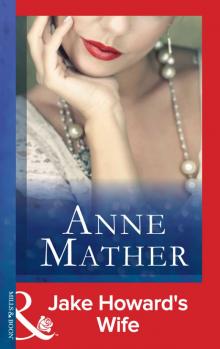 Jake Howard's Wife
Jake Howard's Wife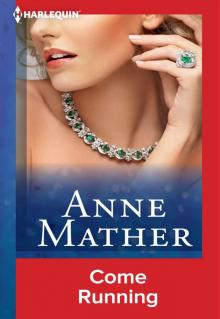 Come Running
Come Running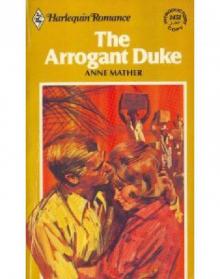 The Arrogant Duke
The Arrogant Duke Sweet Revenge
Sweet Revenge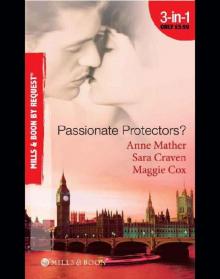 Passionate Protectors?
Passionate Protectors? Savage Awakening
Savage Awakening Come the Vintage
Come the Vintage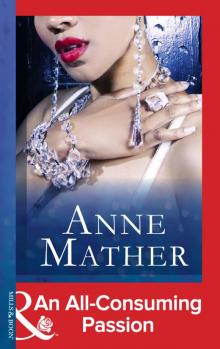 An All-Consuming Passion
An All-Consuming Passion A Fever In The Blood
A Fever In The Blood The Shrouded Web
The Shrouded Web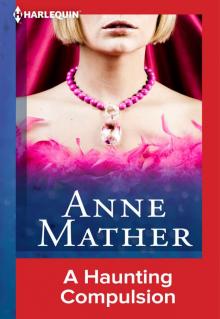 A Haunting Compulsion
A Haunting Compulsion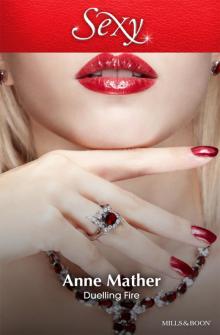 Duelling Fire
Duelling Fire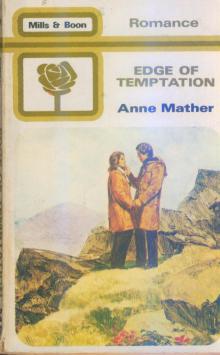 Edge of Temptation
Edge of Temptation Wild Enchantress
Wild Enchantress The Brazilian Millionaire's Love-Child
The Brazilian Millionaire's Love-Child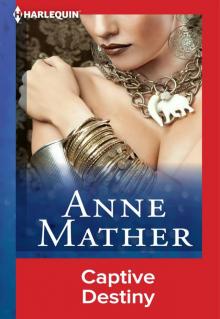 Captive Destiny
Captive Destiny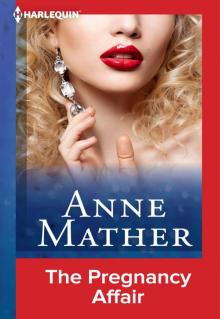 The Pregnancy Affair
The Pregnancy Affair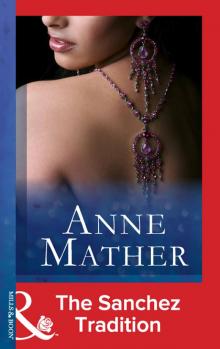 The Sanchez Tradition
The Sanchez Tradition A Passionate Affair
A Passionate Affair Sinful Truths
Sinful Truths Stay Through the Night
Stay Through the Night Seen by Candlelight
Seen by Candlelight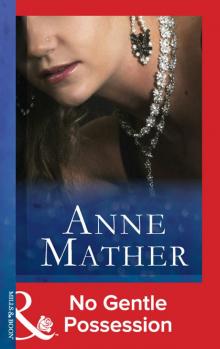 No Gentle Possession
No Gentle Possession His Forbidden Passion
His Forbidden Passion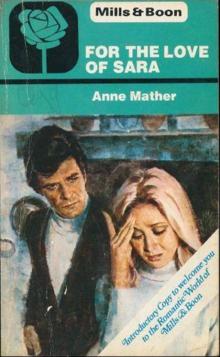 For the Love of Sara
For the Love of Sara A Trial Marriage
A Trial Marriage Melting Fire
Melting Fire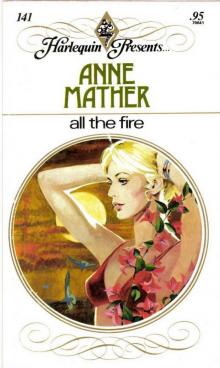 All The Fire
All The Fire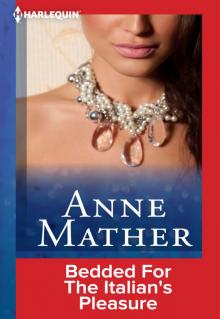 Bedded For the Italian's Pleasure
Bedded For the Italian's Pleasure All Night Long
All Night Long The Japanese Screen
The Japanese Screen Rich as Sin
Rich as Sin Smokescreen
Smokescreen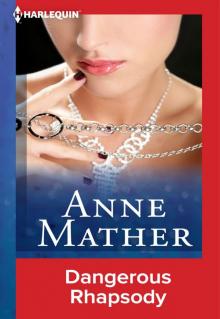 Dangerous Rhapsody
Dangerous Rhapsody Brittle Bondage
Brittle Bondage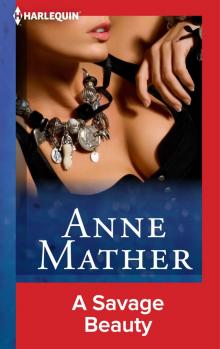 A Savage Beauty
A Savage Beauty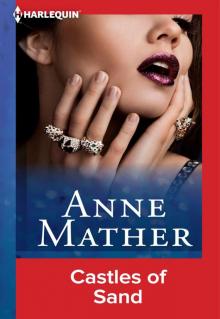 Castles of Sand
Castles of Sand A Distant Sound of Thunder
A Distant Sound of Thunder THE VIRGIN'S SEDUCTION
THE VIRGIN'S SEDUCTION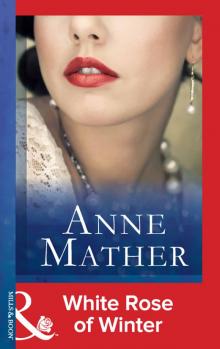 White Rose of Winter
White Rose of Winter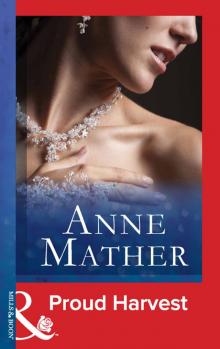 Proud Harvest
Proud Harvest The Legend of Lexandros
The Legend of Lexandros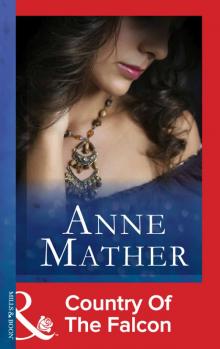 Country of the Falcon
Country of the Falcon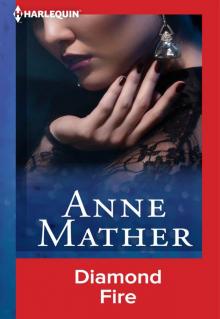 Diamond Fire
Diamond Fire Stormspell
Stormspell Legacy of the Past
Legacy of the Past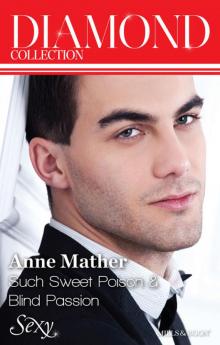 Such Sweet Poison/Blind Passion
Such Sweet Poison/Blind Passion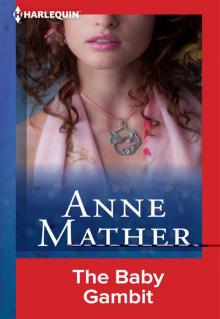 The Baby Gambit
The Baby Gambit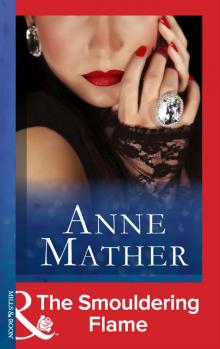 The Smouldering Flame
The Smouldering Flame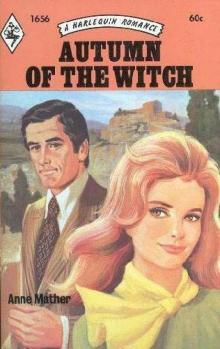 Autumn of the Witch
Autumn of the Witch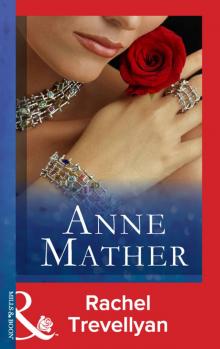 Rachel Trevellyan
Rachel Trevellyan Dangerous Sanctuary
Dangerous Sanctuary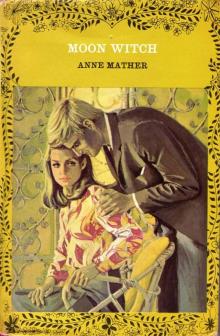 Moon Witch
Moon Witch An Heir Made in the Marriage Bed
An Heir Made in the Marriage Bed Images Of Love
Images Of Love Innocent Obsession
Innocent Obsession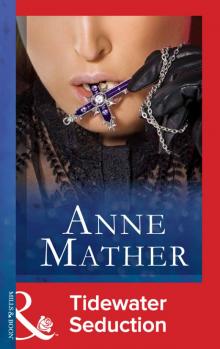 Tidewater Seduction
Tidewater Seduction Pacific Heat
Pacific Heat Take What You Want
Take What You Want The Spaniard's Seduction
The Spaniard's Seduction The High Valley
The High Valley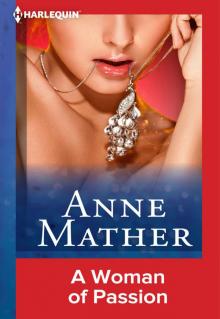 A Woman of Passion
A Woman of Passion The Reluctant Governess
The Reluctant Governess Charade in Winter
Charade in Winter Mendez’s Mistress
Mendez’s Mistress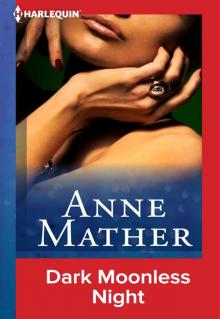 Dark Moonless Night
Dark Moonless Night The Greek Tycoon's Pregnant Wife
The Greek Tycoon's Pregnant Wife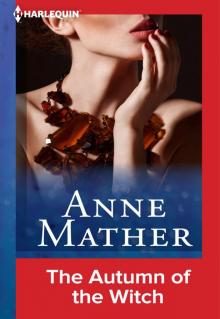 The Autumn of the Witch
The Autumn of the Witch Night Heat
Night Heat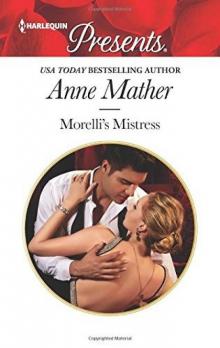 Morelli's Mistress (Harlequin Presents)
Morelli's Mistress (Harlequin Presents)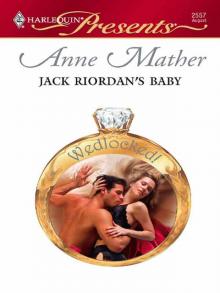 Jack Riordan's Baby
Jack Riordan's Baby Beware the Beast
Beware the Beast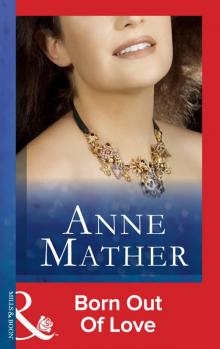 Born Out of Love
Born Out of Love Greek Affairs in his Bed: Sleeping with a StrangerBlackmailed into the Greek Tycoon’s BedBedded by the Greek Billionaire
Greek Affairs in his Bed: Sleeping with a StrangerBlackmailed into the Greek Tycoon’s BedBedded by the Greek Billionaire Green Lightning
Green Lightning Guilty
Guilty Snowfire
Snowfire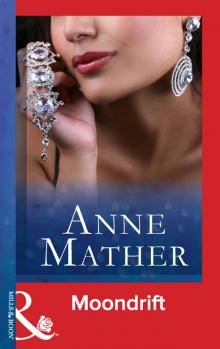 Moondrift
Moondrift Stolen Summer
Stolen Summer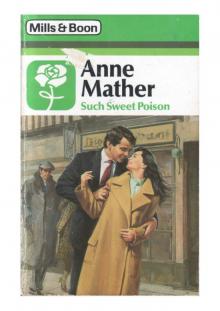 Such Sweet Poison
Such Sweet Poison Dark Venetian
Dark Venetian Innocent Sins
Innocent Sins Baby Out of the Blue
Baby Out of the Blue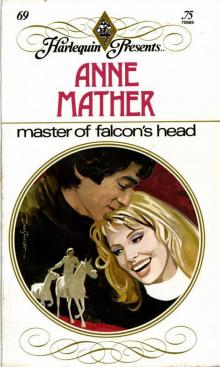 Master of Falcon's Head
Master of Falcon's Head Rooted in Dishonour
Rooted in Dishonour A Secret Rebellion
A Secret Rebellion The Forbidden Mistress
The Forbidden Mistress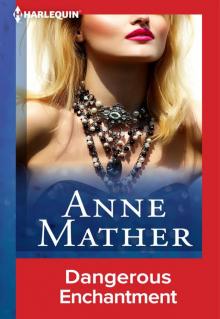 Dangerous Enchantment
Dangerous Enchantment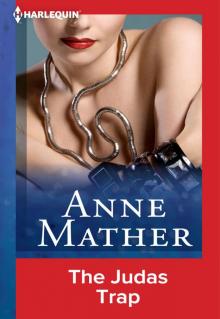 The Judas Trap
The Judas Trap Burning Inheritance
Burning Inheritance Forbidden Flame
Forbidden Flame Who Rides the Tiger
Who Rides the Tiger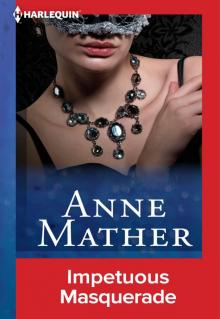 Impetuous Masquerade
Impetuous Masquerade Fallen Angel
Fallen Angel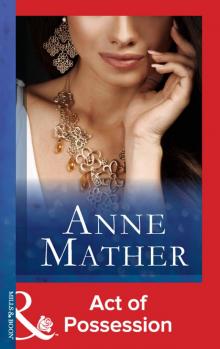 Act of Possession
Act of Possession Dangerous Temptation
Dangerous Temptation Pale Dawn Dark Sunset
Pale Dawn Dark Sunset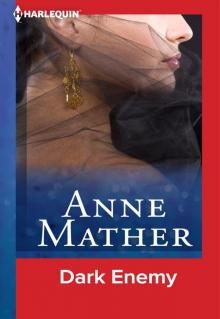 Dark Enemy
Dark Enemy Innocent Virgin, Wild Surrender
Innocent Virgin, Wild Surrender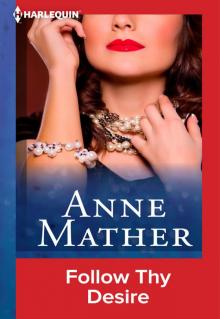 Follow Thy Desire
Follow Thy Desire Sandstorm
Sandstorm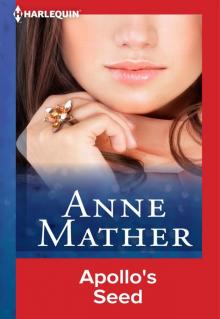 Apollo's Seed
Apollo's Seed Whisper Of Darkness
Whisper Of Darkness A Wild Surrender
A Wild Surrender A Dangerous Taste of Passion
A Dangerous Taste of Passion The Night Of The Bulls
The Night Of The Bulls Hot Pursuit
Hot Pursuit The Longest Pleasure
The Longest Pleasure An Elusive Desire
An Elusive Desire Storm In A Rain Barrel
Storm In A Rain Barrel